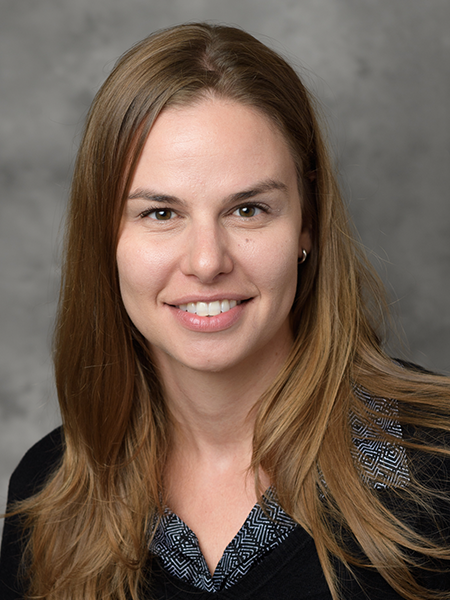Pienaar honored with NSF CAREER Award to study viral life cycles

Pienaar, assistant professor of biomedical engineering at the Weldon School of Biomedical Engineering, recently received a National Science Foundation Faculty Early Career Development (CAREER) award from the NSF’s division of Molecular and Cellular Bioscience for her research proposal, “Complexity from Simplicity: Multi-scale Computational Deciphering of the Viral Life Cycle.”
The five-year, $729,048 award was given to identify interconnected subcellular and inter-cellular mechanisms that drive viral replication and spread within a host, using Ebola virus as a model system. The work is a collaborative effort with Dr. Robert Stahelin, Retter Professor of Pharmacy and Professor of Medicinal Chemistry and Molecular Pharmacology at Purdue University. This research is also supported by funding from the Indiana Clinical and Translational Sciences Institute Project Development Teams.
By using a combination of experimental data and computer simulations to understand and predict the complex interactions that drive Ebola virus infection, weak points in the protein network can be identified and targeted with new pharmaceuticals.
The scientific work within this award will be closely integrated with educational programs that bring together biological and computational students and educators across high school to graduate levels. The goals of these educational research objectives are to build interdisciplinary and intercultural competence in engineering students, and to enhance quantitative teaching tools for biological topics.
“Mechanistic computational models are powerful tools that generate virtual versions of real biological systems, to enable analysis of complex systems-level dynamics,” said Pienaar. “I’m hopeful that these research and education objectives will enable a comprehensive understanding of Ebola virus biology, integrated computational and experimental research tools, and a scientific workforce that can take advantage of computational technology to advance public health.”
The CAREER program is an NSF-wide activity that offers awards in support of junior faculty who exemplify the role of teacher-scholars through outstanding research, excellent education, and the integration of education and research within the context of the mission of their organizations.
In additional to her faculty position, Pienaar is the principal investigator of the Computational Systems Pharmacology Lab. She earned her MS and PhD in chemical and biomolecular engineering from the University of Nebraska-Lincoln and did postdoctoral work in microbiology, immunology and chemical engineering at the University of Michigan as well as at Linköping University, Sweden. Her laboratory uses computational simulations of within-host pathogen, immune and drug dynamics to optimize treatment of infectious diseases.
